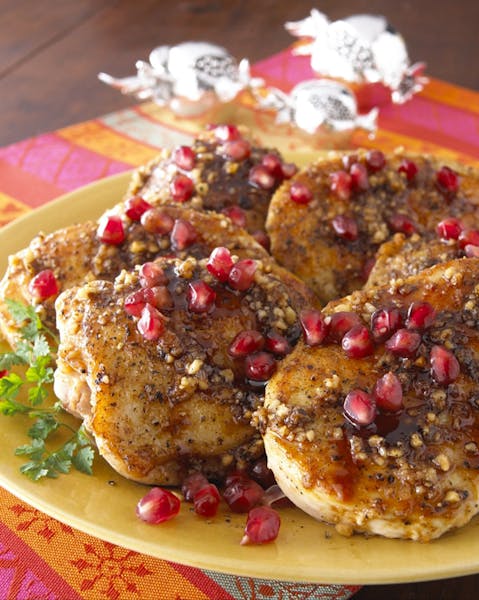It's family and friends at the Passover Seder for the Russell and Desta Klein family. "In some years, there are as many Gentiles as Jews at the table," said Russell Klein, chef/co-owner of Meritage in St. Paul. "It's the quintessential home-cooked meal, one that you'd never find in a restaurant."
He and Desta, his wife and business partner, will join his family on New York's Long Island as they do every year. The menu will be inspired by his aunt Tina Wasserman of Dallas, a cookbook author, historian and cooking teacher. Klein credits her for Meritage's fabulous matzo ball soup as well as that glorious potato kugel. ("I 'chef' things up a bit, though," he added.)
Wasserman's cookbook, "Entrée to Judaism: A Culinary Exploration of the Jewish Diaspora" (URJ Press), details the history and traditions of Jewish cuisine as interpreted worldwide. "As Jews traveled from the Roman Empire along the Silk Road to the Middle East and to China, they adapted to the tastes and ingredients available in their new environment, creating our culinary heritage," she said.
The Klein Seder dinner reflects Wasserman's scholarship and eye for varied, flavorful food. They abide by Passover's strict tenets: no leavened breads, grains or meat cooked on the bone.
"I offer several main dishes. So I may serve Persian chicken in pomegranate syrup and a classic brisket or braised beef sweetened with prunes [tzimmes]," Wasserman said.
The bold sweet-and-sour flavors and meat-and-fruit pairings mirror the foods Klein discovered on a recent trip through Austria and Hungary, his ancestral home. Side dishes may include potato kugel and glazed carrots. The meal finishes with Wasserman's Linzer torte.
Given the plenty at the table, the appetizer is a simple chicken liver pâté.
"Though I'd love to have foie gras mousse," Klein said. "The Jewish tradition of eating foie gras likely goes back to Egypt, but the documented history of Judaism and foie dates to the 11th century, as the Ashkenazi migrated across Central Europe.
"Goose fat, being similar to schmaltz, was considered to be kosher. Geese were fattened for their fat, and the delicious liver was essentially a byproduct. To this day Hungary and Bulgaria are the second- and third-largest producers of foie gras in the world, owing largely to their Ashkenazi Jewish history," said Klein.
As a practical matter, these Seder dishes may be made in advance and they hold well in the oven, allowing cooks to participate in the ceremony without distraction.
"We've always made everything from scratch," Klein said. "Everyone pitches in. All the men in my family cook. My father makes a terrific gefilte fish in a Bundt pan. I still help chop the apples for the charoset [the traditional mix of apples, walnuts, cinnamon and wine]. Growing up, it was one of my favorites. I'm sure every family has a version of its own."
Beth Dooley is the author of "The Northern Heartland Kitchen."
